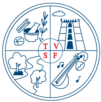Scientific findings confirm the essentiality of music in day-to-day lives of people. Music has been part of all human groups such as nomads, tribal, hunter-gatherers and settlers. The realisation of the need for music therapy for enhancing cognitive ability is due to recent findings.
Psychologists are now aware of the role of pleasant and sweet music for those who are tormented by unpleasant, bitter and traumatic events. More evidence is coming up before us of the importance of music in improving the cognitive ability among children especially in premature infants.
There are also a large number of positive reports on the noticeable improvement of behaviour of the mentally-retarded or mentally-challenged with music training. There are confirmed reports that with music people regain their lost confidence and are able to cope with their inadequacies.
Though in many such modern experiments, music of Mozart seems to have stolen a march, various other forms of music including Indian ragas have also come to the fore as a therapeutic companion to all those who are stressed and distressed.
The role of music in being a ‘feel good’ factor for those in distress has scientific confirmation as well. Music cheers up both the stressed and the depressed by enhancing the supply of brain waves responsible for ‘relaxed alertness’. Several clinical trials conducted on Mozart music by Alfred Tomatis, Frances Rauscher, Gordon Shaw and other scientists, have all come to indicate the positive and beneficial impact of music on the overall human health and welfare.
The therapeutic mechanism of music, although recognised for long, has escaped the crucible of science – almost till recently. Though lauded in our legends and myths, the impact of music has been too subjective all through. However, recent decades have witnessed an explosion of scientific information on musical impact on mind and body, thanks to the giant strides made in neuro-imaging techniques, creating thus a new branch of science often coming to be referred to as neuromusicology.
In the coming years, one could hope that music would shed its image as a ‘quack’ medicine, and occupy the pride of place as a complementary medicine that goes hand in hand with other medical branches such as anaesthesia, geriatrics, physiotherapy, psychotherapy, rehabilitation, surgery, etc.
Though music makes no promise, its importance as a companion for the sick, lonely and marginalised is well-recognised. It facilitates a healthy and fruitful dialogue, especially when you have no one to care for you or even to talk to you! A healthy and positive attitude towards existence and life is guaranteed to anyone who cares to listen to it. It becomes a dependable strength behind you, when you feel helpless, depressed and dejected. It is a morale booster as it rejuvenates the mind, brings in sunshine and brilliance.
Aaron Copland’s words, in this regard, should be written in gold: ‘The greatest moments of the human spirit may be deduced from the greatest moments in music!’ Are sound and its patterns recognised innately, or are they learned? There are scientific reports in this regard, which are path breaking. In one of the recent articles in Psychology Today, it is reported that music’s complex representation in the brain makes it a difficult subject of study.
A fundamental aspect of music perception is recognition of a melody in different keys.
The articles was published in Bhavans Journal February 15, 2009 – Page 68, 69
Edited by Geeta Shreedar, July 22, 2021
